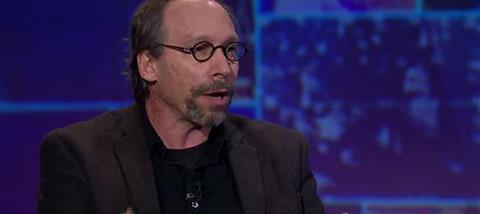
Until five years ago or so, you might have thought that the only place where sexual misconduct occurred was the Church.
There was considerable coverage of horrors such as the Catholic paedophile scandals and the misbehaviour of prominent evangelicals like Ted Haggard.
Now the picture is clearer. Yes there has been terrible behaviour among a minority of Christians. But there have been sexual harassment and assault scandals over the past few years in all spheres of life.
Within the entertainment world in the UK, it began with the sordid child abuse revelations about Jimmy Saville, and it’s featured other one-time heroes such as Bill Cosby along the way.
More recently Hollywood media mogul Harvey Weinstein has been accused of being a prolific predator. Politics, business, charities, public services, other religions: sexual misconduct is a problem everywhere, not just in the Church.
So it’s not a huge surprise that misconduct in the militant atheist community has now been alleged. Lawrence Krauss, a physicist who argues against God being the first cause of the universe, is accused of sexual harassment in a variety of forms. He says they are “false and misleading defamatory allegations”. Whatever the truth, we are bound to hear a lot more about it in the coming weeks.
Responding well
New atheists had often presented themselves as enlightened moral crusaders against the bigotry of old-fashioned and harmful ideas such as religion. It’s perhaps tempting to crow when they are said to be not as righteous and enlightened as they had hoped.
I don’t think that's a helpful response. Better to think, how can the Church speak into this ongoing outrage about sexual misbehaviour? What do we have to say?
Some argue that we should be addressing ‘patriarchal’ structures in society that favour men over women and lead to sexual harassment and oppression. But I’d like to take a more traditional angle.
To the recent generations who rejected Christianity, it may have seemed that the Church’s traditional teaching on sex – that it should be kept within monogamous marriage – spoiled the fun of modern sexual liberation. Even the words ‘sin’ and ‘lust’ have negative connotations that scream ‘killjoy’ for many people who are not Christians in our society.
Yet if the recent exposés have told us anything, it’s that there are serious drawbacks to the sexual liberation movement, even when looked at from a purely secular point of view.
Our society needs to ask itself some hard questions, such as: to what extent should pleasure be an end in itself? If sex is always OK between ‘consenting adults’, how do you establish consent? How do you set and keep to boundaries with a powerful emotion such as lust? How does a person know what is acceptable and what is not?
True freedom
Those who keep to traditional morals need to get in on the conversation. Our story is this: there is no freedom in satiating desires whenever you feel like it with whomever appears to consent to it. This is in fact slavery, and it will ultimately lead to another person being hurt. Instead, we have a better option: freedom from those desires, through life in Christ, and his love expressed within us.
No, not all Christians live like this, we have to be honest. Giving our lives to Christ is not an instant solution to sexual problems for many – it’s a long process of growing in Christ. But those who have found freedom from lust need to tell their stories. I think our secular culture might be ready to listen.
Freedom is not being able to do whatever we want when we want to. Freedom comes through Christ’s victory over our selfish behaviour and sin – at the cross 2,000 years ago and in the here and now, in our everyday life. To be, for want of a better word, ‘pure’ in Christ – that is where true joy and contentment is to be found.
Click here for a free sample copy of Premier Christianity magazine



























